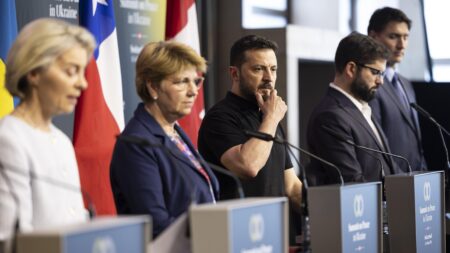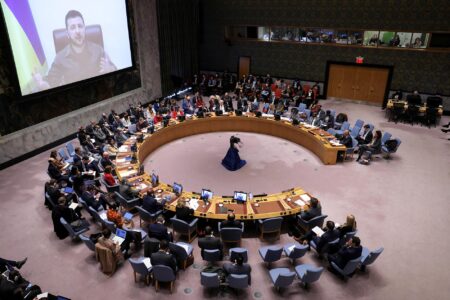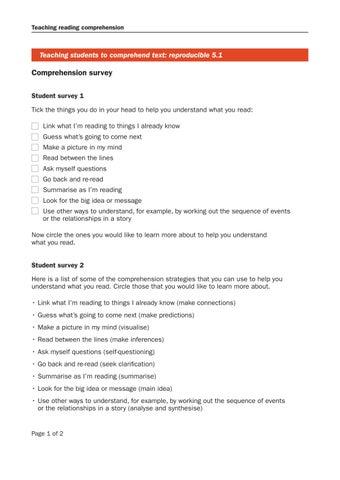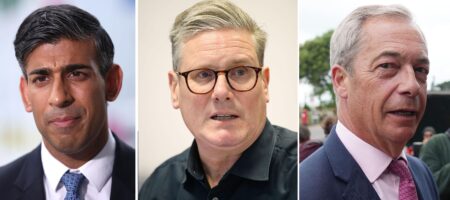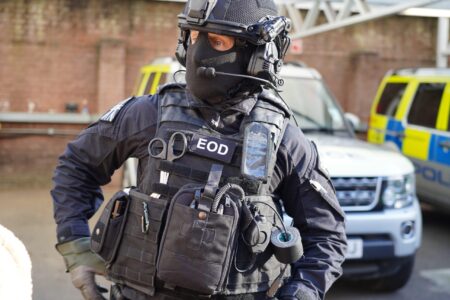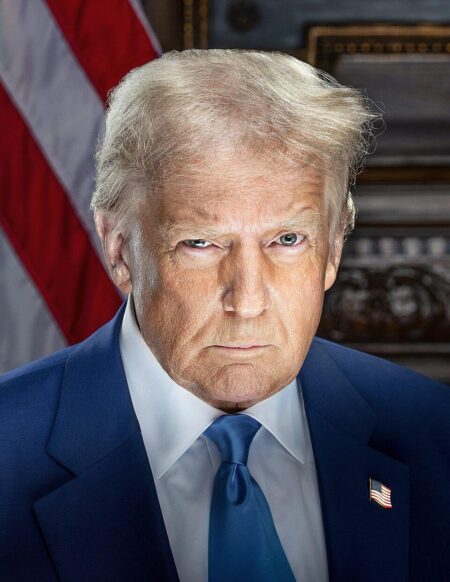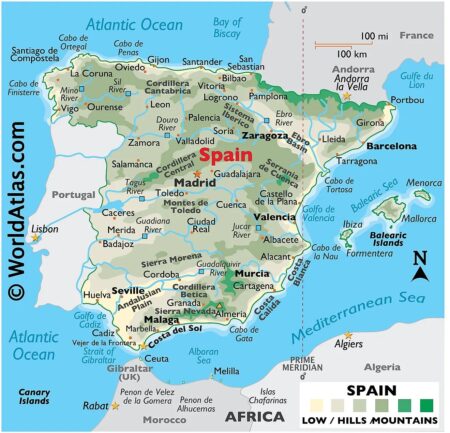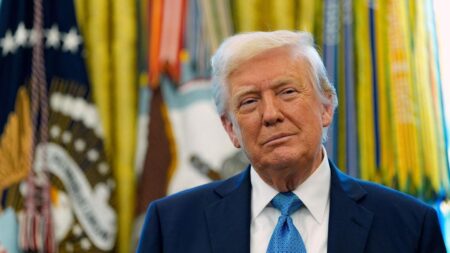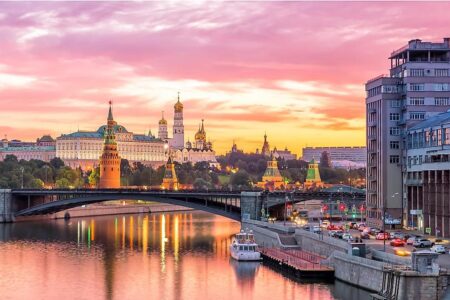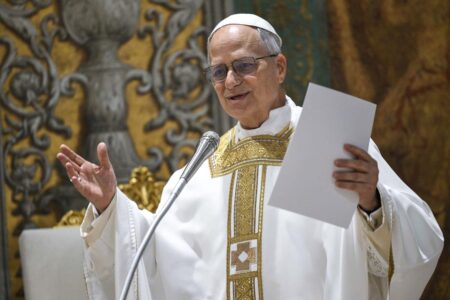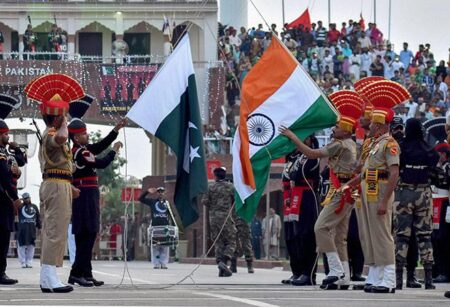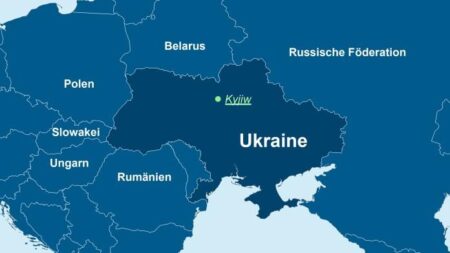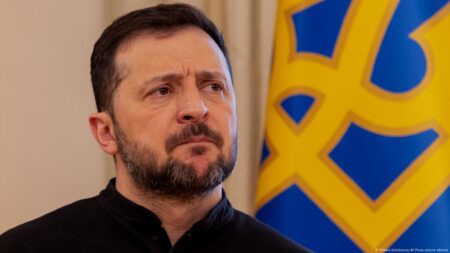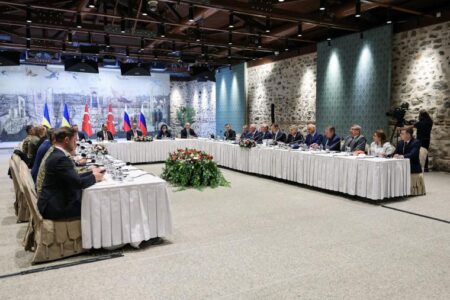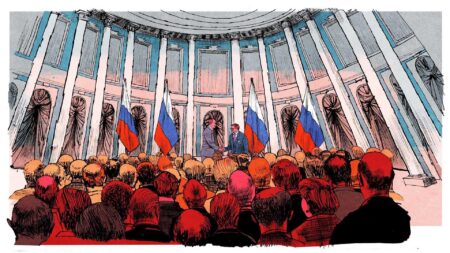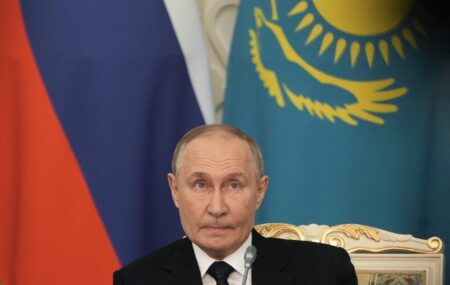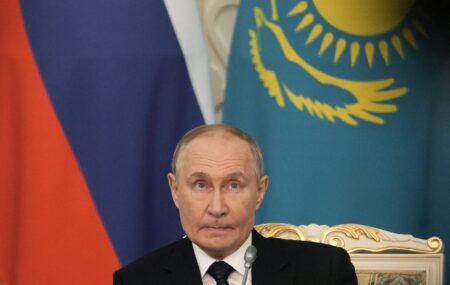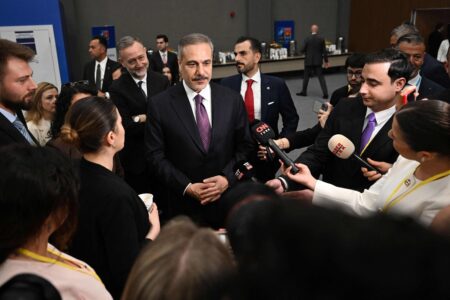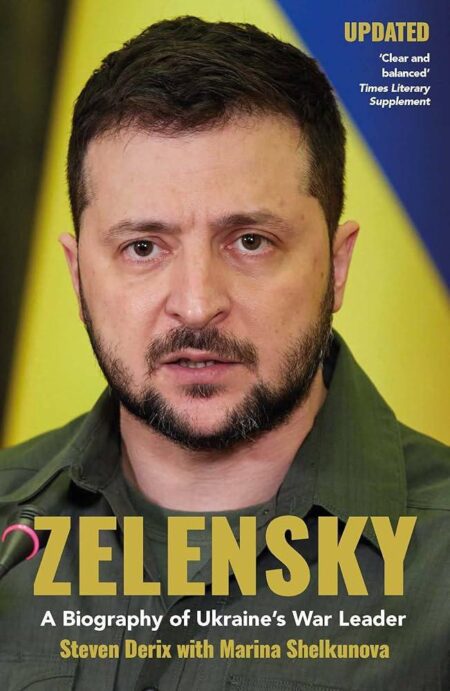Russian President Vladimir Putin announced that Russia is “ready” to step into a third round of peace talks with Ukraine, signaling a possible breakthrough in the long-standing conflict. However, the fighting continues unabated, with no ceasefire on the horizon
Browsing: peace talks
The UN Security Council convened urgently to tackle the escalating conflict in Iran, with Russia and China demanding an immediate ceasefire. Diplomatic efforts are ramping up swiftly to ease tensions and bring stability back to the region
Former U.S. President Trump reportedly gave Putin a bold two-week ultimatum to seek peace in Ukraine. Instead of easing tensions, Russia escalated the conflict with a new surge of drone attacks, intensifying the violence even more
Leaders of the UK, France, and Germany are urgently appealing for peace in the Middle East, calling on all parties to choose diplomacy over conflict and break the relentless cycle of violence, reports kfgo.com
The UK and India have kicked off new talks aimed at strengthening their counter-terrorism collaboration following Pakistan’s recent ceasefire announcement, Reuters reports. Both nations are determined to enhance their security alliance as they join forces to foster enduring peace and stability across the region
Ukraine has reportedly taken out 40 Russian aircraft deep inside Russia just before peace talks in Istanbul, ramping up tensions as both sides gear up for crucial negotiations, the Los Angeles Times reveals
Former President Donald Trump proudly highlighted his greatest accomplishment: averting a potential nuclear conflict between India and Pakistan by championing increased trade between the two countries, according to a statement reported by The Hindu
Spain has brought together a pivotal gathering of European and Arab nations to explore innovative pathways toward a two-state solution for the Israel-Palestine conflict. These crucial talks are designed to ignite dialogue and collaboration, paving the way for enduring peace in the region.
In a bold statement, former President Donald Trump proposed that a substantial prisoner exchange between Russia and Ukraine might just be the key to unlocking a major diplomatic breakthrough. His comments spark intriguing questions about possible changes in the dynamics of the ongoing conflict.
Russia has firmly rejected the Vatican as a possible location for peace talks concerning Ukraine, branding the idea as “vulgar.” This dismissal highlights the persistent diplomatic strains as attempts to find a resolution to the conflict continue to stumble.
In a bold statement, former President Donald Trump proposed that Pope Leo might serve as a crucial mediator in the escalating conflict between Russia and Ukraine. This intriguing notion not only sparks curiosity but also invites us to ponder the potential of religious diplomacy in shaping global politics
Pakistan has once again pledged its dedication to a ceasefire with India, highlighting a strong desire for lasting peace in the region. Yet, officials have issued a clear warning: any acts of aggression will be met with a swift and decisive response. They are calling for open dialogue as the key to ensuring stability and harmony.
Ukrainian and Russian officials have touched down in Turkey, sparking hopes for dialogue, but peace negotiations remain elusive. As tensions continue to simmer, both sides tread carefully, underscoring the intricate challenges that stand in the way of a lasting resolution amid the ongoing conflict.
Ukrainian President Volodymyr Zelenskyy has been actively engaging in crucial discussions with former President Donald Trump and key allies after the recent peace talks with Russia fell short, leaving no ceasefire in sight. This dialogue is essential as they strategize to counter the relentless aggression, all while navigating a landscape where diplomatic options are increasingly limited.
In a dramatic turn of events, the talks between Ukraine and Russia in Istanbul wrapped up without a ceasefire agreement. Moscow remained firm on its demand for Kyiv to withdraw from four contested regions, underscoring the deep-seated tensions that continue to plague the conflict. These discussions revealed just how intricate and challenging the path to peace truly is.
In a groundbreaking step towards peace, Russia and Ukraine are sending their negotiators to Istanbul for vital discussions. Moscow’s team boasts seasoned diplomats with a wealth of experience, while Ukraine is determined to bolster its stance with highly skilled representatives.
In a dramatic twist, Russia and Ukraine are gearing up for their first direct talks in three years, igniting a wave of intrigue and uncertainty amidst the backdrop of ongoing tensions. As both nations navigate a labyrinth of complex issues, observers are holding their breath with cautious optimism.
Russia and Ukraine are gearing up for a pivotal meeting that could reshape their ongoing tensions. Yet, uncertainty looms over who will be in attendance. With global leaders keeping a watchful eye, the stakes have never been higher for both nations. Stay tuned for the latest updates!
In a significant development, Russia has unveiled plans to assemble a delegation that will participate in peace talks with Ukrainian officials on May 15. This announcement hints at a possible turn towards diplomacy amid the persistent tensions, igniting hopes for a much-needed resolution to the ongoing conflict.
Ukrainian President Volodymyr Zelensky has firmly reiterated his stance as he prepares for this week’s crucial talks in Turkey. He emphasized that his participation hinges on the presence of Russian President Vladimir Putin. These discussions are set to tackle the escalating tensions between their nations, making it a pivotal moment for both leaders.

